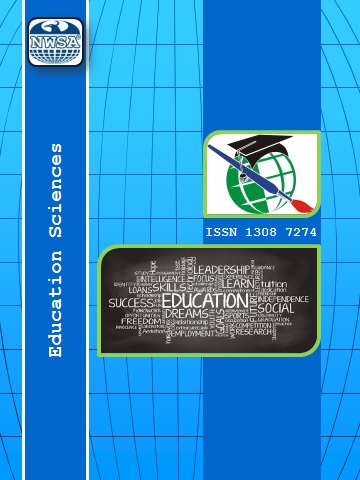İLKÖĞRETİM FEN VE TEKNOLOJİ DERSİ İÇİN GELİŞTİRİLEN MATERYALLERİN ÖĞRENCİLERİN YARATICI DÜŞÜNME BECERİLERİNE VE ÖZ KAVRAMLARINA ETKİLERİ
Yasemin SAYAN1
,
Hülya HAMURCU 2
Bu çalışmanın amacı, ilköğretim dördüncü sınıf Fen ve Teknoloji dersi için geliştirilen materyallerin öğrencilerin yaratıcı düşünme becerilerine ve öz kavramlarına etkilerini belirlemektir. Çalışma, 2006-2007 eğitim-öğretim yılında Balıkesir merkezdeki bir ilköğretim okulunda öğrenim gören 76 öğrenci ile gerçekleştirilmiştir. Çalışmada, eşitlenmemiş kontrol gruplu model kullanılmıştır. Kontrol grubunda ders kitabı ve çalışma kitabındaki etkinlikler uygulanmıştır. Deney grubunda ise, ders kitabı ve çalışma kitabı yanında araştırmacılar tarafından geliştirilen çalışma yaprakları, sunular, eğitsel oyunlargibi materyaller kullanılmıştır. Veriler, Torrance Yaratıcı Düşünme Testi ve Piers-Harris Öz Kavramı Ölçeği kullanılarak toplanmıştır. Veriler, betimsel analiz, ilişkisiz örneklemler t-testi ve ANCOVA teknikleri kullanılarak analiz edilmiştir. Çalışma sonuçlarına göre, uygulama sonrasıyaratıcı düşünme becerilerin denesneklik alt boyutunda deney grubu lehine istatistiksel olarak anlamlı bir fark bulunurken, öz kavramı açısından anlamlı bir fark bulunamamıştır.
Keywords
Yaratıcı Düşünme Becerisi,
Öğrenci,
Öz Kavramı,
Fen ve Teknoloji Dersi,
İlköğretim ,
 +90(535) 849 84 68
+90(535) 849 84 68 nwsa.akademi@hotmail.com
nwsa.akademi@hotmail.com Fırat Akademi Samsun-Türkiye
Fırat Akademi Samsun-Türkiye
